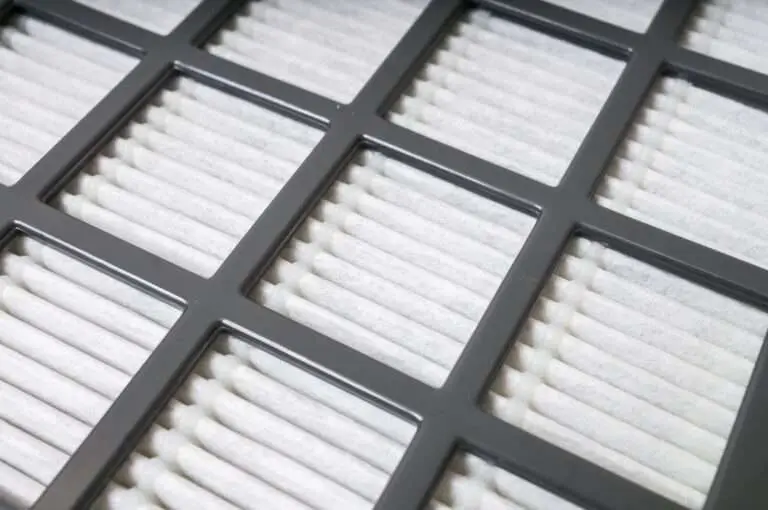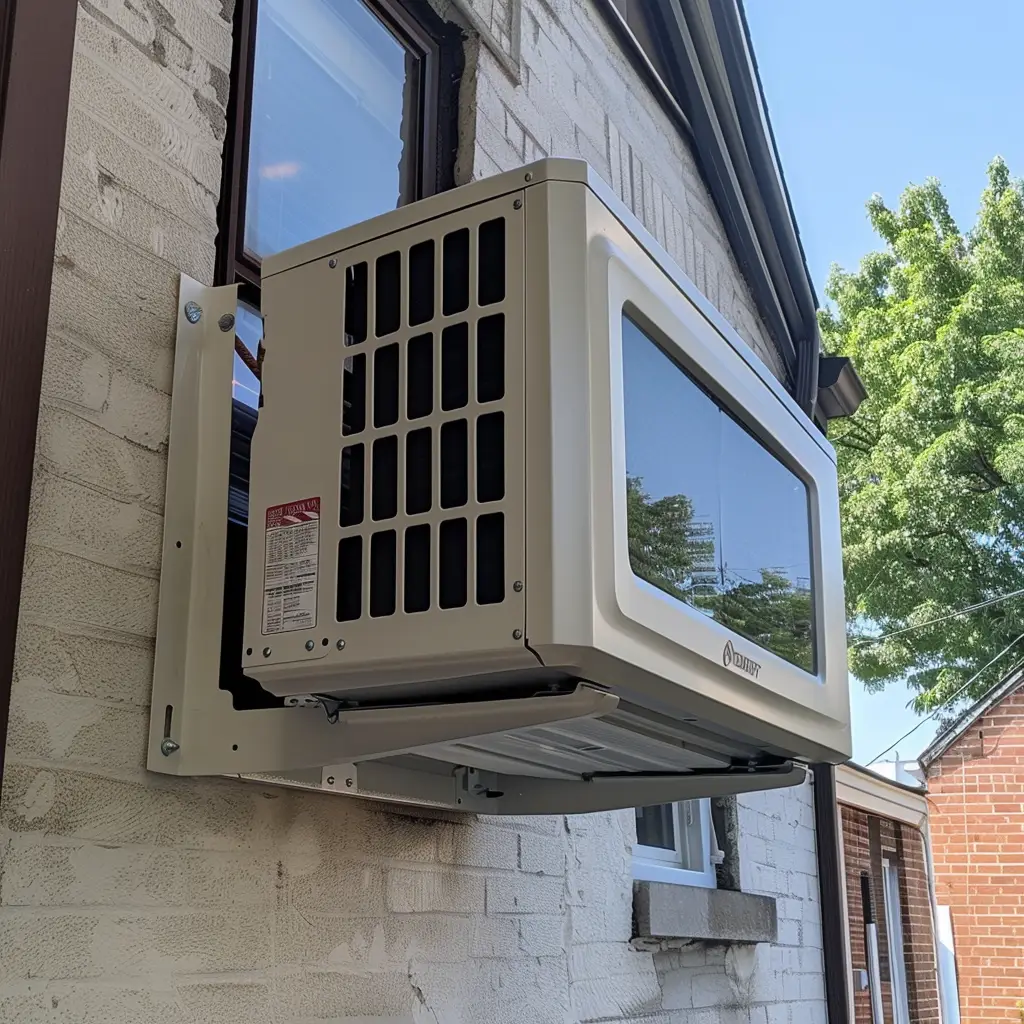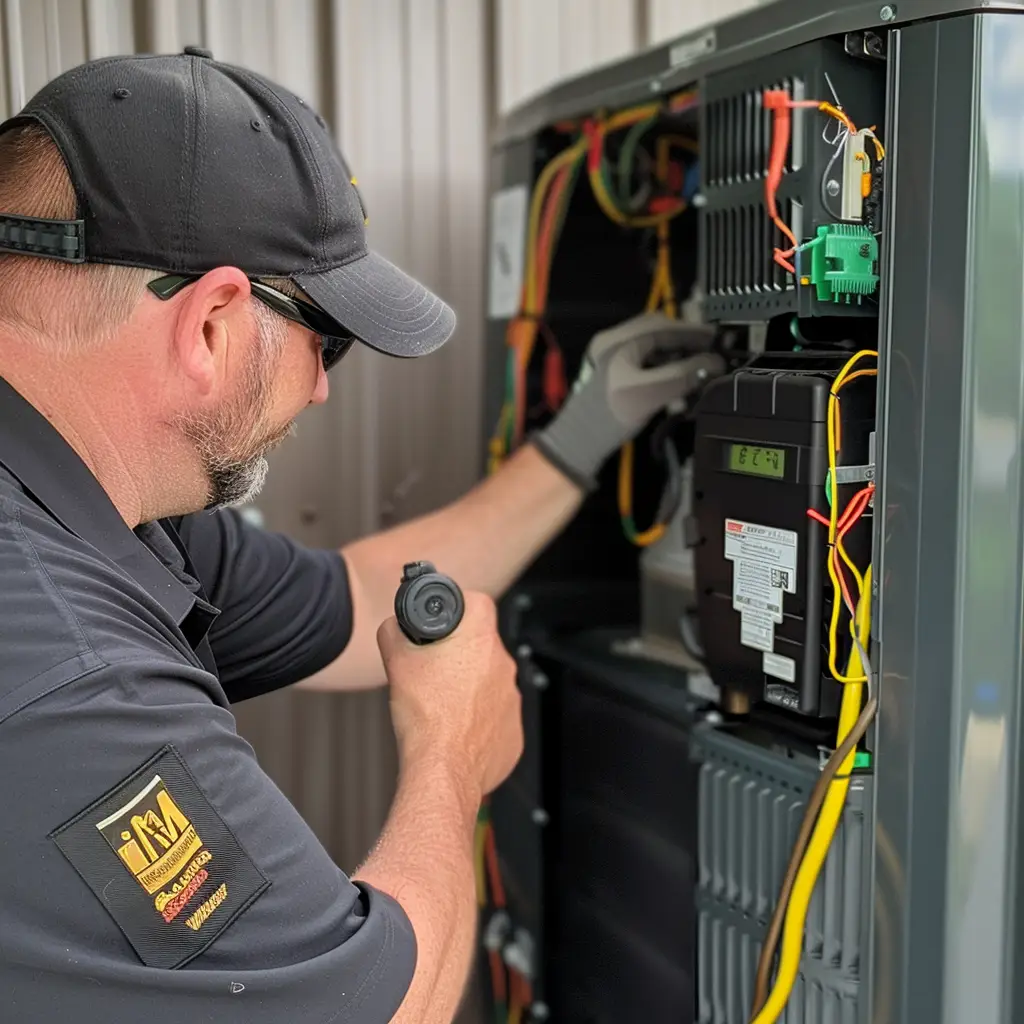HEPA (High Efficiency Particulate Air) filters help to improve the indoor air quality in a home by reducing the levels of contaminants in the air to improve overall health and comfort.
HEPA filters improve the overall performance of your HVAC system by removing contaminants from the air and reducing the load on the system. This can lead to lower energy costs and a longer lifespan for the system.
How Does A Hepa Filter Purify Air?
A HEPA filter is designed to be highly efficient at capturing contaminants (pollen, dust, dander) and are typically made from a fine mesh of fibres that are tightly woven together.
When air passes through a HEPA filter, the contaminants in the air become trapped in the filter’s fibres. The fibres are so fine that they can capture particles as small as 0.3 microns in size, which is smaller than many viruses and other microscopic contaminants.
What MERV Rating Can My Furnace Handle?
The MERV (Minimum Efficiency Reporting Value) rating of a furnace filter refers to its ability to filter out contaminants from the air. The higher the MERV rating, the more efficient the filter is at capturing contaminants.
The MERV rating that your furnace can handle will depend on the design and capabilities of your furnace. Most furnaces are designed to handle filters with a MERV rating of 8 or lower. However, some newer, higher-efficiency furnaces may be able to handle filters with a higher MERV rating.
A HEPA filter commonly ranks at MERV 17-20, which depending on your furnace model, may or may not be compatible. Using a filter with a higher MERV rating than your furnace is designed to handle can restrict airflow and decrease the efficiency of the furnace. On the other hand, using a filter with a lower MERV rating may not provide adequate filtration, which can lead to poor indoor air quality.
How To Choose A HEPA Filter For Your Home
When shopping for a HEPA (High Efficiency Particulate Air) filter for your home, there are several factors to consider to ensure you choose the best filter for your needs. Some things to look for in a HEPA filter include:
- Size and capacity: Make sure to purchase a HEPA filter that is appropriately sized for your home. A filter that is too small may not be able to effectively remove all of the contaminants from the air, while a filter that is too large may be unnecessary and may waste energy.
- Efficiency: Look for a filter with a high efficiency rating, such as a MERV (Minimum Efficiency Reporting Value) rating of 17 or higher. A higher efficiency rating means the filter is more effective at capturing contaminants from the air.
- Compatibility: Make sure to choose a filter that is compatible with your HVAC system. Some filters may not fit certain types of systems or may require additional adapters or modifications.
- Durability: Look for a filter that is made from high-quality materials and is designed to last. This will help to ensure that the filter is effective over time and does not need to be replaced frequently.
- Cost: Consider your budget when shopping for a HEPA filter. Higher-quality filters may be more expensive upfront, but they may be more cost-effective in the long run due to their higher efficiency and durability.
In conclusion, there are several factors to consider when shopping for a HEPA filter for your home. Make sure to choose a filter that is appropriately sized and efficient, is compatible with your HVAC system, is durable, and fits within your budget. If you are unsure which filter





